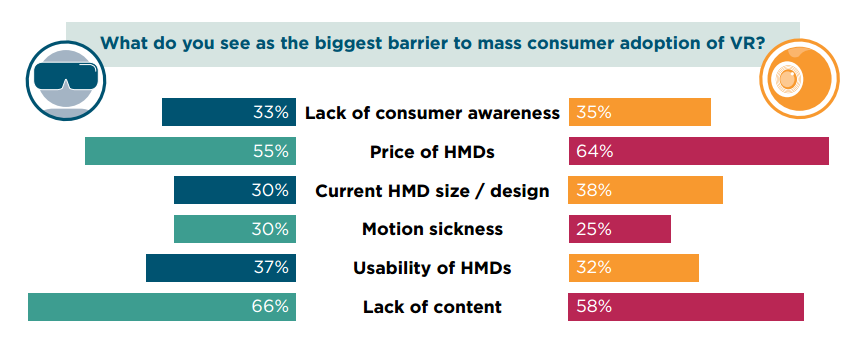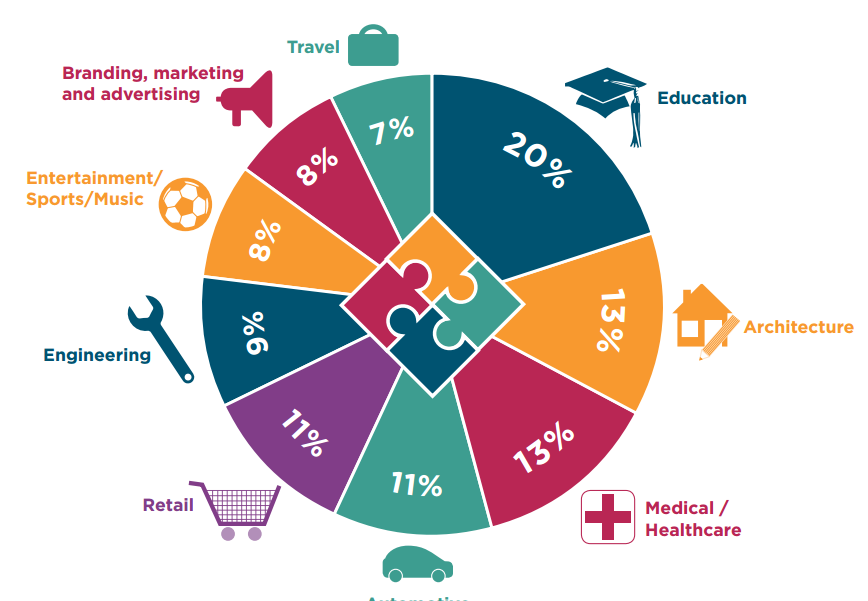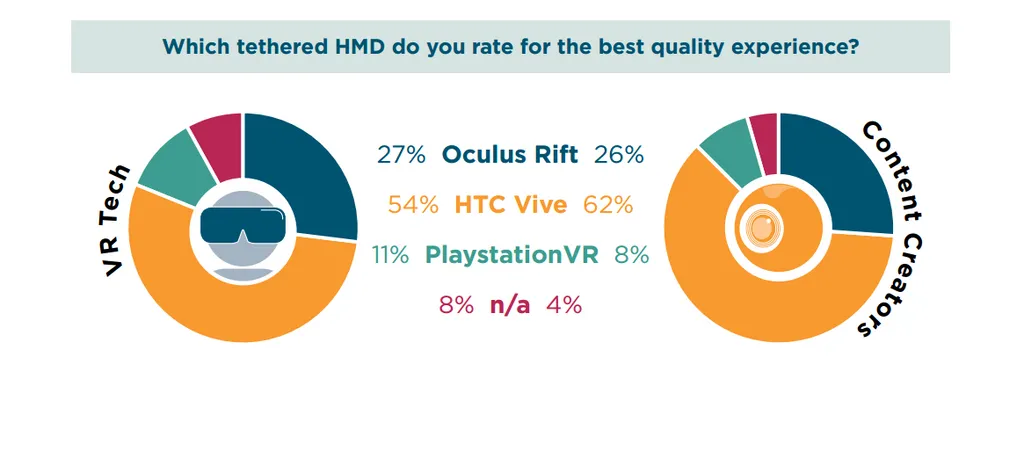As the VR industry evolves, enthusiasts and investors are keeping their fingers to the pulse to get a better idea of which direction the industry is growing in. Another window into the trajectory of VR is by way of events such as VRX Europe which takes place May 11th-12. Along with VRX in San Francisco, the event brings together a collectiion of VR experts called VR Intelligence. The VR Intelligence network takes the intel from VRX along with a survey they conduct to shape a comprehensive snapshot of the industry, and that snapshot has been released for all to see.

The survey was completed by 523 VR professionals with insight on VR software, hardware, and middleware development across different disciplines including healthcare, retail, automotive, and more. Content creators such as broadcasters and devs made up the largest chunk of respondents at 48 percent with VR tech providers at 20 percent, consultants and press at 18 percent, and end-users at 14 percent. To no one’s surprise, tech providers and content creators see the price of HMDs as a significant barrier to consumer adoption but they also both agree that lack of content is to blame as well. Content creators specifically would have the most weighted insight into this statistic and data elsewhere in the survey could point to why they feel this way.
When it comes to content development, creators point to a lack of hardware/platform standardization as a challenge to their endeavors. OpenXR is a recent development that could lower that percentage significantly in the next year as it rolls out, but the top concern by a stout margin is the lack of content distribution and monetization options. Hopefully, OpenXR’s simpler standardization will quickly open the door to more welcoming marketplaces when it comes to those concerns.

Another interesting observation in the VR Intelligence survey is the fairly consistent spread of industries that took part in this survey. The casual gaze may pin VR into gaming and other forms of entertainment but travel, marketing, engineering, retail, automotive, architecture, education (supplying the largest amount of respondents with 20 percent), and healthcare all stand to gain as VR evolves so it is encouraging to see all of them represented.
The full survey from VR Intelligence and VRX can be viewed in its entirety in PDF format.


























